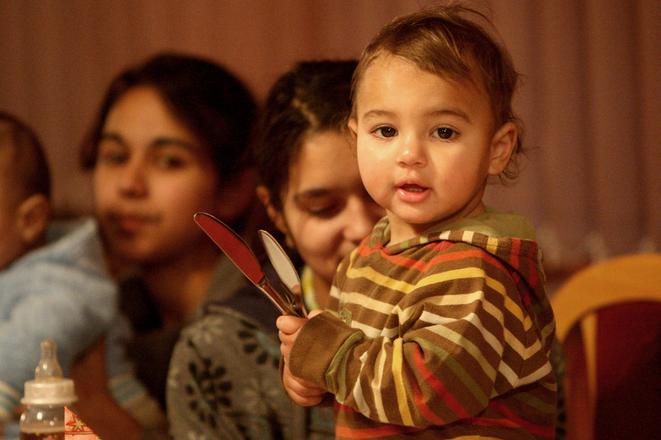No other researcher contributed more to the understanding of the post-WWII history of Roma ethnics in Slovakia than Anna Jurová. I remember how finding her office at the Institute of Social Sciences of the Slovak Academy of Sciences, hidden among Communist-time blocks of flats in the eastern Slovak city of Košice, proved a bit trickier than I expected, but it was worth the effort. I found not only a very knowledgeable person with a sharp and curious mind but one who really enjoyed sharing her trove of research.
To my amusement, she had googled me prior to the interview and had read the posts written in my far-from-academic Slovak on my blog about life as a foreigner in Slovakia. The researcher had done some research.
The Roma people, also known as Gypsy, count for an estimated 10 percent of Slovakia’s population and researching their history is not an easy task at all, simply because there is a lack of written documents on this topic in local or national archives. No wonder there are not so many researchers who have ventured in this field and even fewer have spent an entire career in it.
I hope you will enjoy this selection of a few interesting quotes from Anna Jurová used in my radio programmes over the years, and, more importantly, I hope they will help you gain an insight in the life of a minority who often becomes the focus of populist discourse in the Slovak mainstream political scene.
We have theories and hypotheses saying that they came from present-day India and began arriving in Eastern Europe in the 12th and 13th centuries. The first written document that mentions the existence of Roma travellers in Slovakia is a letter from 1322 written by a feudal lord from the Spišská Nová Ves region in Eastern Slovakia. Then we have some documents from the 16th century that speak about Roma families that settled at the outskirts of Slovak villages. They were mostly blacksmiths and musicians. And they had to get the permission of the feudal lord in order to settle there. This is a very important aspect that can help us understand what’s going on with today’s Roma population - in their entire history they needed somebody’s permission to settle somewhere, and usually they were allowed to do so only at the outskirts of localities. This is how their segregation emerged. They have always been regarded as outsiders. Even if they were employed to work the fields of people in the village and paid for their labour, their status was closer to serfdom.
It’s a bit sad that we have to rely on Czech sources to research our own history. If you search the Slovak archives from the early 1950s until 1989 you can find only sketchy police reports about Roma being arrested for stealing something but later released. It’s interesting that Communist political leaders were so keen on presenting the nation as a solid group where race did not matter but the police were keen on writing down that Roma were arrested, a practice that continued until well into the 1990s.
We know that the Communists forbade Roma to practice their trade, which was a big blow for smiths and bricklayers. Part of the process of forced assimilation, Roma were obliged to take up jobs in factories or agriculture, usually low skilled, low paid jobs. When factories shut down in the early 1990s during the wild stages of economic transformation in Slovakia, guess who was the first to go? The Roma employees. Not very skilled and surrounded by thousands of jobless people, they quickly sank deep into poverty and now we have a generation of Roma young adults whose parents have never worked. Many have spent their entire life in settlements without running water and electricity. And we have to persuade this generation to get an education and find a job.
R.I.P PhDr Anna Jurova PhD (1953-2018)
Anca Dragu is a journalist with Radio Slovakia International, which is available in Bratislava in English on 98.9 FM at 6:30 pm and 8:30 pm and at www.rsi.sk. The opinions expressed in this blog are her own.



 "We have a generation of Roma young adults whose parents have never worked. And we have to persuade this generation to get an education and find a job." Anna Jurová (source: Sme )
"We have a generation of Roma young adults whose parents have never worked. And we have to persuade this generation to get an education and find a job." Anna Jurová (source: Sme )